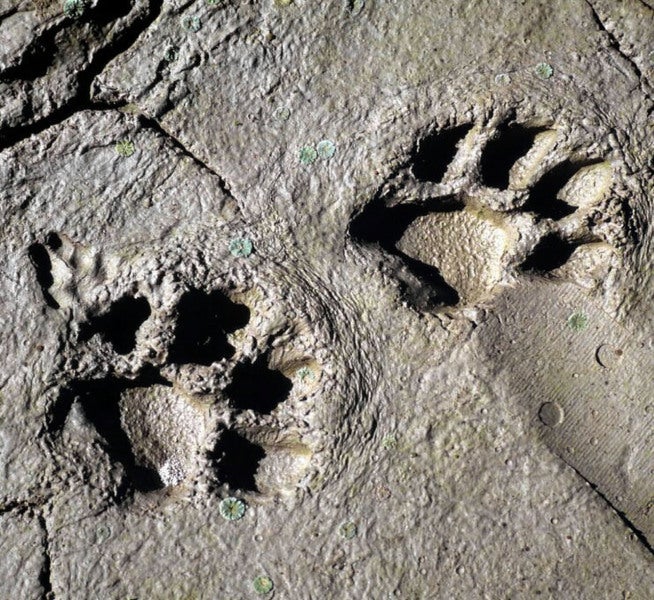Zero poaching needs to be the norm, not the exception
The current level of poaching is completely unacceptable, but we can put an end to it

Your support helps us to tell the story
From reproductive rights to climate change to Big Tech, The Independent is on the ground when the story is developing. Whether it's investigating the financials of Elon Musk's pro-Trump PAC or producing our latest documentary, 'The A Word', which shines a light on the American women fighting for reproductive rights, we know how important it is to parse out the facts from the messaging.
At such a critical moment in US history, we need reporters on the ground. Your donation allows us to keep sending journalists to speak to both sides of the story.
The Independent is trusted by Americans across the entire political spectrum. And unlike many other quality news outlets, we choose not to lock Americans out of our reporting and analysis with paywalls. We believe quality journalism should be available to everyone, paid for by those who can afford it.
Your support makes all the difference.It is astonishing to me that tigers are still being killed to feed the illegal trade in tiger parts and products. Analysis done by the organisation TRAFFIC has found that over 1500 tigers have been killed for their parts since 2000.
These are shocking statistics – the equivalent to the parts of more than two tigers seized every week, every month, every year. Tiger poaching is a constant threat. It is a threat that we must take seriously if we want our children and grandchildren to have any hope of seeing tigers in the wild.
Every day, rangers are putting their lives on the line to protect our planet's important wildlife. These unsung heroes work continuously, under harsh conditions, to keep wildlife safe. They face danger - from the poachers to the very wildlife they protect but they walk on, in the forests, hills and snow. The danger is very real, in the last ten years 1000 rangers have been killed on the job.
They devote their lives to protecting wild spaces and species. Without their brave commitment many species like tigers, elephants and rhinos would not stand a chance at the hands of poachers. So we should all give thanks to these rangers. They need our appreciation and support. Not only do rangers need reliable equipment to do their jobs they also need the support of local governments and the robust enforcement of national laws against poaching. WWF helps by bolstering grassroots conservation and rangers on the frontlines to stop wildlife crime, providing training in field and enforcement skills.
The achievement of "zero poaching" is imperative for long-term recovery of the wild tiger population. This requires resources that can challenge many governments in tiger range countries. In many places, tiger areas are in desperate need of increased protection efforts. I read that in Nepal they seem to have the situation largely under control – the last tiger known to have been poached was over three years ago - which seems to be a remarkable achievement, especially given Nepal is a developing country which has many other social and economic challenges to contend with.
It seems that close teamwork amongst the government, police, army, NGOs and local communities is producing real change. WWF has been working as part of this team to support efforts to tackle poaching and protect tigers. Of course, reducing the demand for tiger parts is one very big challenge which needs political will and a creative approach, but while this demand exists the need to have strong protection on the ground is critical. We really need governments to step up but they need our support and our provocation to stay on the right path. Together we can make zero poaching a reality.
Background
Nicola Howson started her career in public relations 25 years ago after a chance meeting led to some work experience in a small agency. She now runs one of the leading communications agencies in the UK, freuds. Prior to this she spent the bulk of her career in the media industry, TV production, multi-channel television and in network television as Communications Director of ITV.
Nicola joined freuds in early 2006 and established its Corporate practice, specializing in reputation management. She became CEO in 2010 and today is responsible for nurturing and developing the agency, its clients and its people as it continues towards its fourth decade.
Nicola advises a wide range of freuds’ clients including major consumer brands such as Mars, PepsiCo and Asda, media companies including Sky, Condé Nast and Warner Bros and corporate clients including RBS and Vodafone.
Alongside a client roster that includes some of the world’s best-known brands, freuds also has a proud history of working with a number of not-for-profit organisations including The Global Fund, (Red), The Bill and Melinda Gates Foundation and Comic Relief. Nicola has personally overseen the agency’s involvement in some important conservation and environmental projects including the WWF Virunga campaign, Sky Rainforest Rescue, Whiskas Big Cat Little Cat and a documentary charting the plight of the endangered Caucasian Leopard.
Join our commenting forum
Join thought-provoking conversations, follow other Independent readers and see their replies
Comments